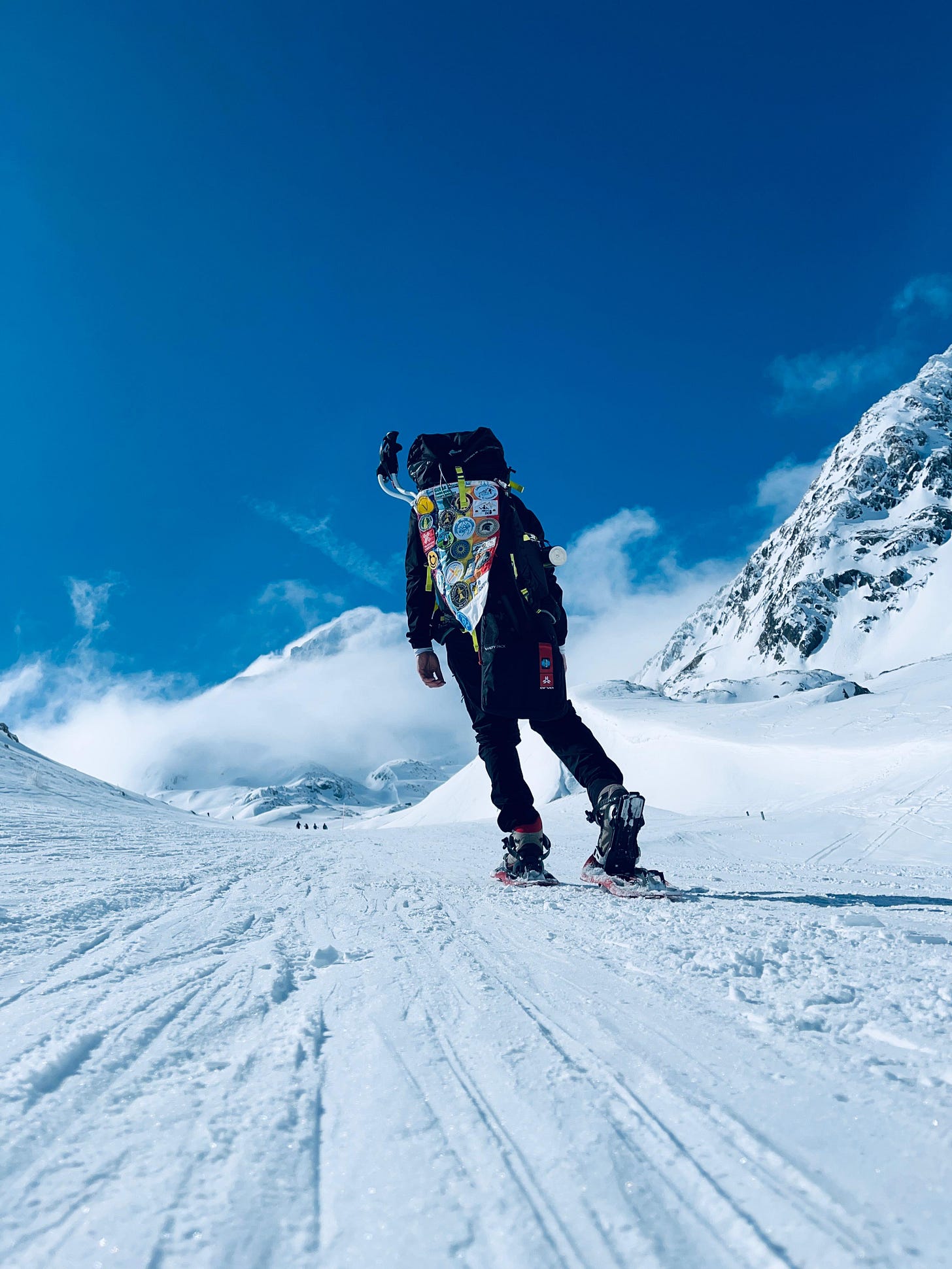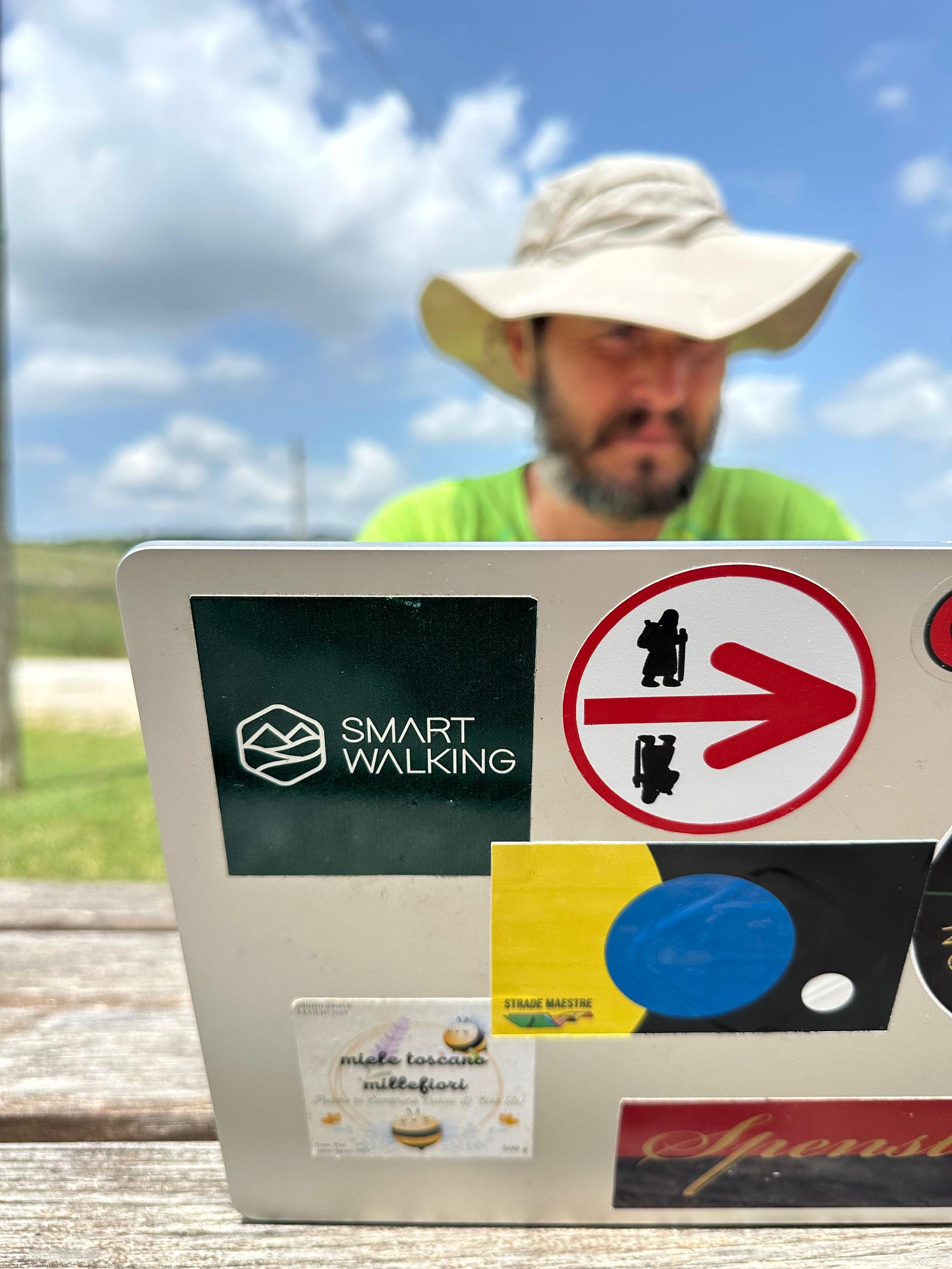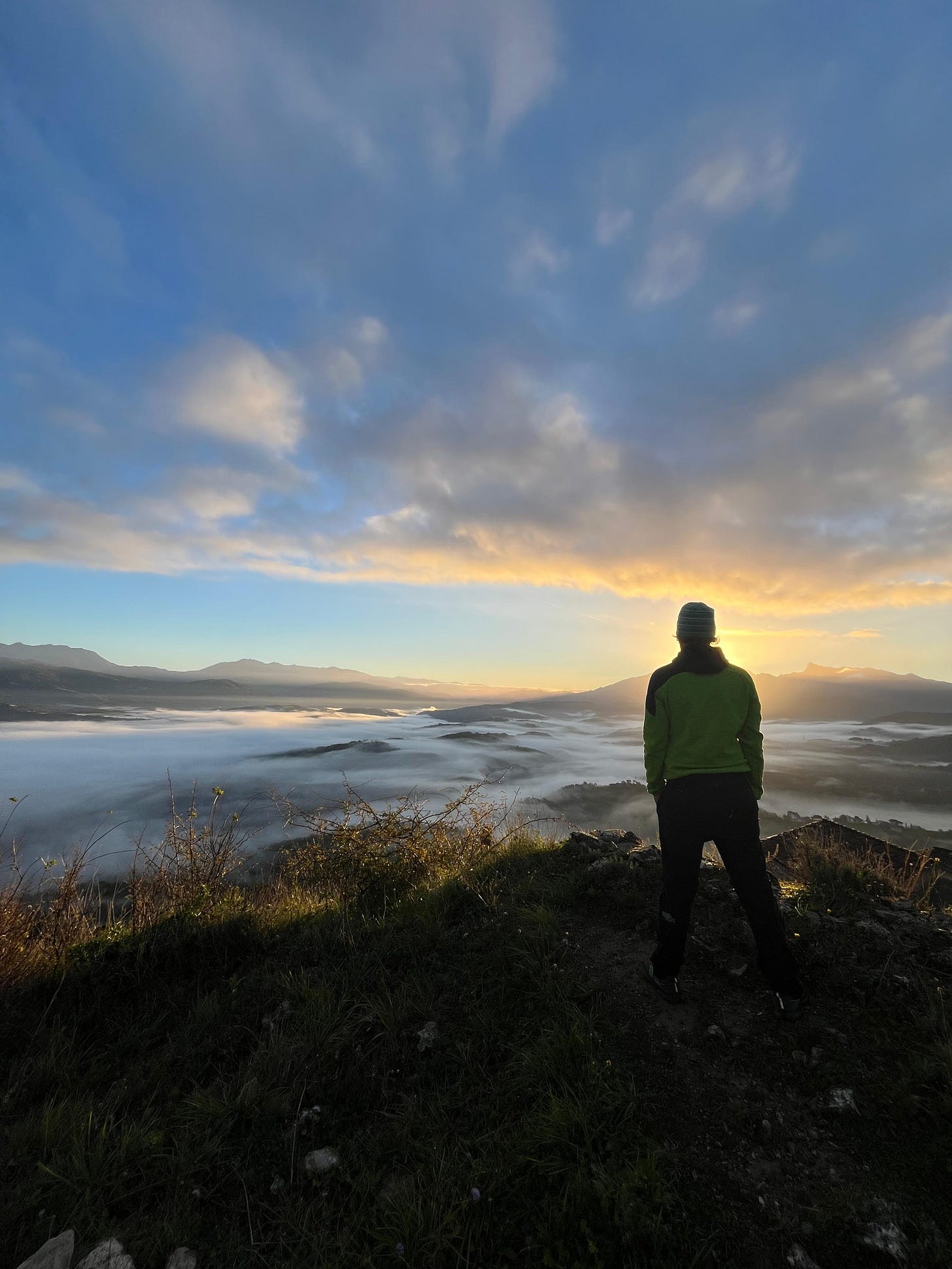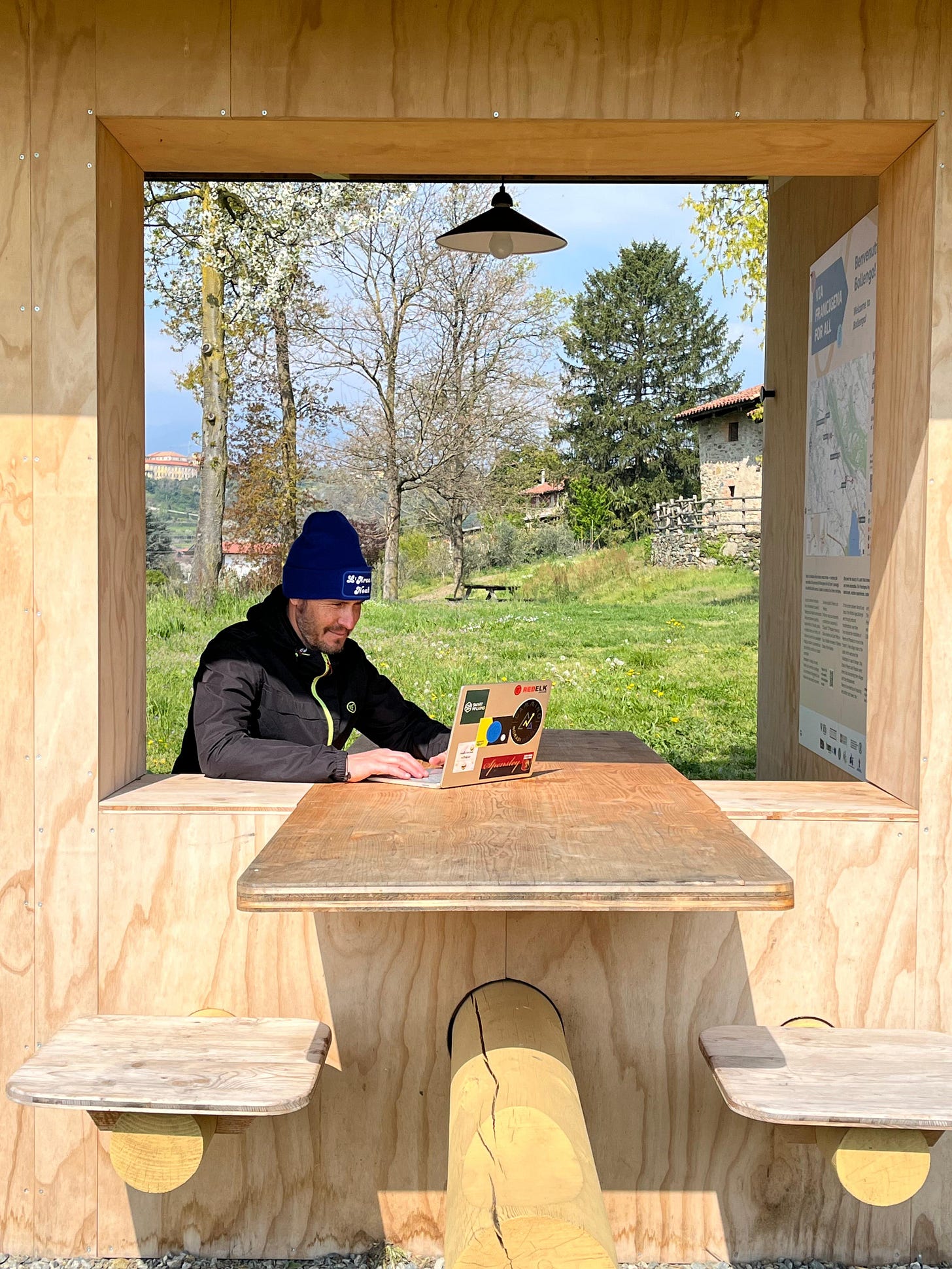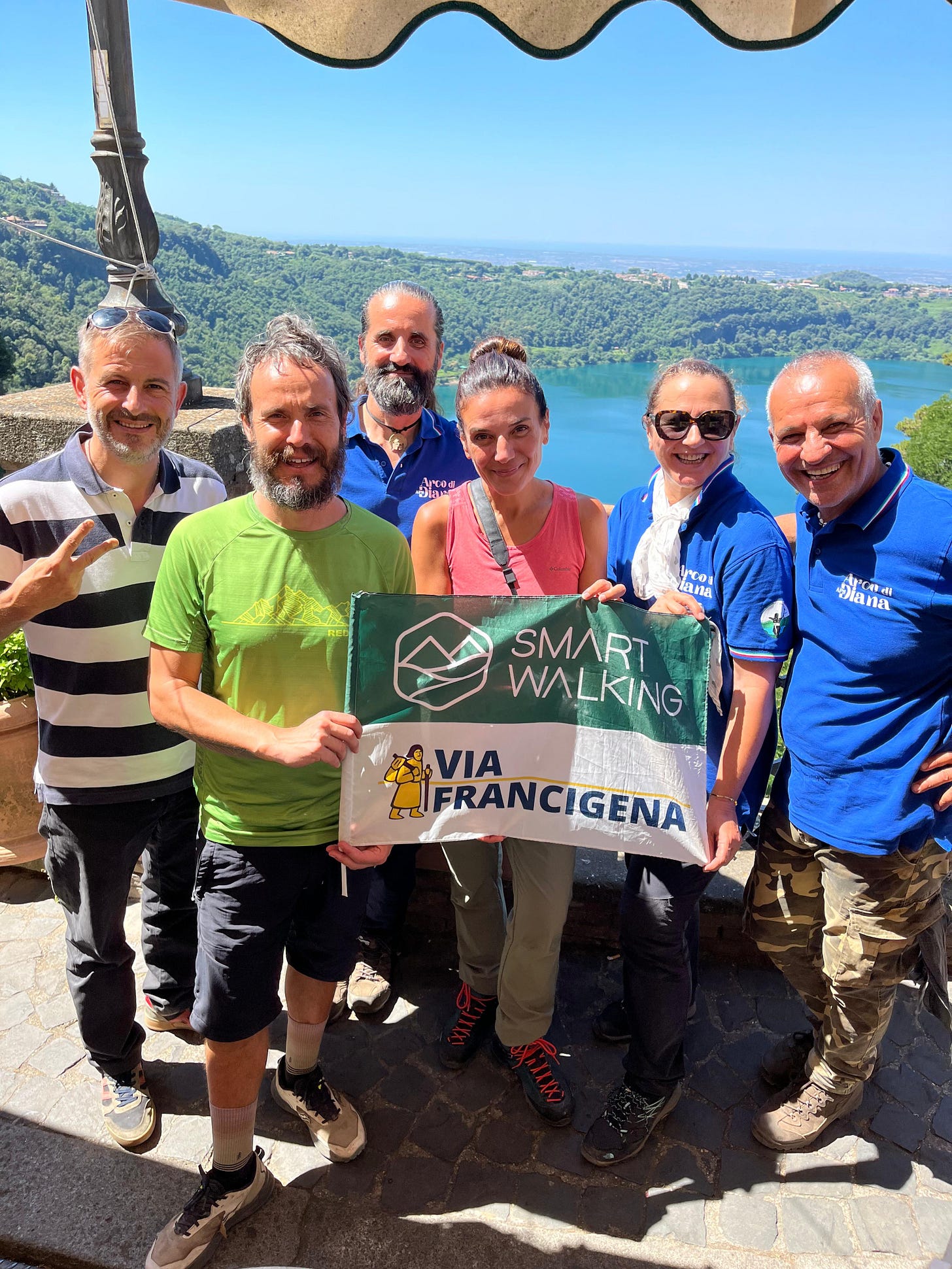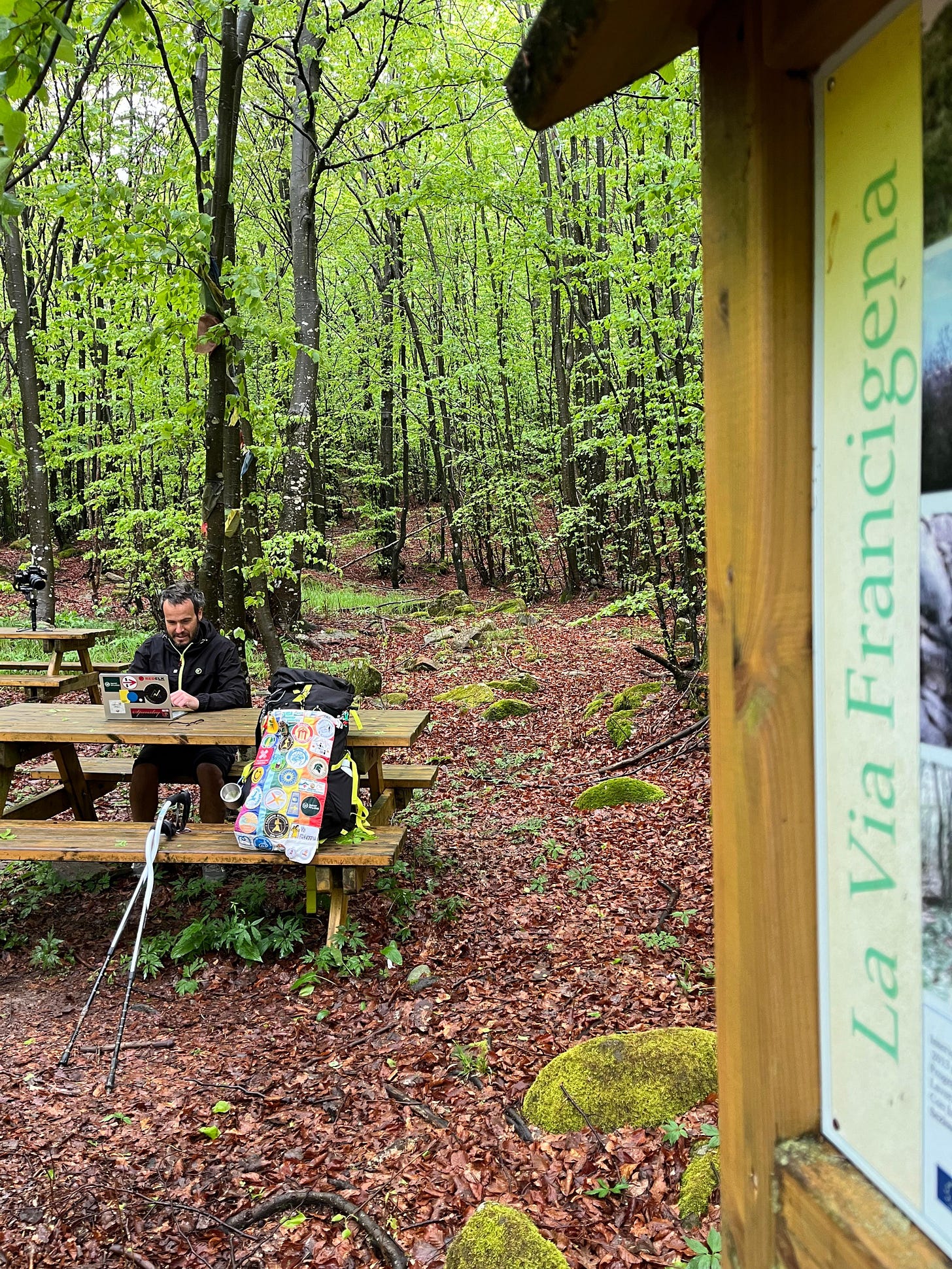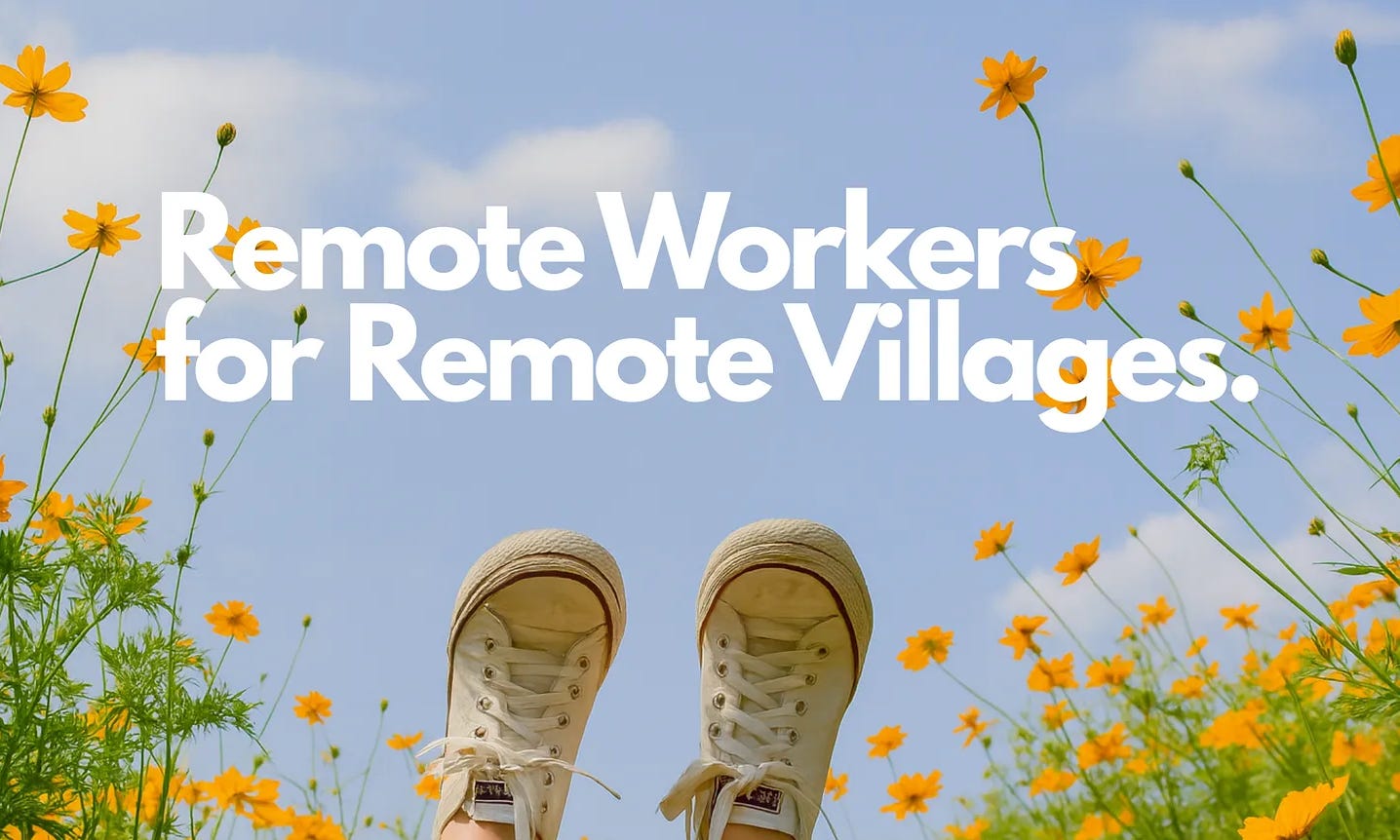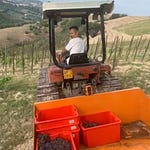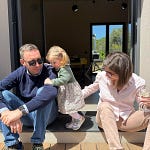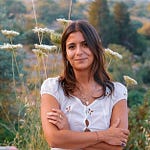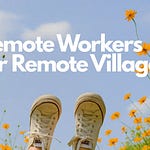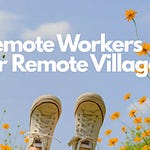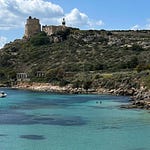Ci sono persone che parlano di benessere e poi ci sono persone che lo vivono, lo praticano, lo misurano nel tempo e nello spazio.
Davide Fiz appartiene alla seconda categoria.
Per chi non lo conoscesse, Davide è il fondatore di Smart Walking, un format – ma prima ancora una filosofia – che unisce cammino, territorio, benessere e lavoro remoto. Non si tratta semplicemente di “fare hiking” nel tempo libero, ma di integrare movimento e consapevolezza nella quotidianità professionale. Smart Walking nasce come un esperimento personale e diventa presto una proposta strutturata: incontri, percorsi guidati, workshop itineranti pensati per manager, freelance e aziende che vogliono ripensare produttività, energia e creatività.
Davide ha trasformato la sua esperienza diretta in un modello replicabile che oggi ispira un’intera community di remote worker e professionisti in transizione.
È con questo bagaglio di vissuto, idee e cammini che arriva nella serie Remote Workers for Remote Villages, il format con cui esploriamo come vivere, lavorare e prosperare fuori dai grandi centri urbani.
E, fin dai primi minuti, riesce a fare ciò che gli riesce meglio: spostare il discorso dalla teoria alla vita reale.
Una vita modellata su misura (e senza rinunce)
Durante il nostro dialogo, nasce quasi spontanea una domanda: “come ha fatto Davide a costruire una vita così coerente con ciò che lo fa stare bene?”
La sua risposta parte da una verità semplice e potente: “Ho potuto ritagliarla intorno alla mia persona.”
Ed è vero: tutta la sua storia professionale degli ultimi anni è un lavoro di sottrazione e ricomposizione. Non ha abbandonato il lavoro. Non si è isolato. Non si è messo ai margini.
Ha solo invertito l’equilibrio: prima il benessere, poi l’organizzazione del lavoro.
E questo, per molti, è già un ribaltamento culturale.
Lavorare altrove senza sacrificare niente
Una delle parti più forti dell’intervista è quando Davide chiarisce che la sua non è una fuga, ma una scelta consapevole: “Si può lavorare in remoto o in centri minori senza dover sacrificare nulla.”
Una frase che va contro il pregiudizio ancora radicato: se ti allontani dalle grandi città, “perdi” qualcosa — opportunità, network, qualità del lavoro.
Davide dimostra il contrario: si può vivere in un paese, in una valle, vicino ai boschi o al mare, e mantenere relazioni professionali solide, clienti, progetti, crescita.
E mentre lo racconta, non nasce mai il sospetto che sia un discorso teorico.
È esperienza pura, sedimentata camminando e lavorando allo stesso tempo.
Benessere come strumento di lavoro (non come optional)
Nel suo racconto emerge una linea molto chiara: il benessere non è la pausa dopo il lavoro, ma è parte del lavoro.
“Costruire la propria vita intorno a quello che rende la giornata più sostenibile emotivamente e fisicamente.”
Smart Walking nasce esattamente da qui: dalla necessità di reintrodurre movimento, natura e spazio mentale nelle giornate di lavoro. Non come hobby serale, ma come abitudine che alimenta creatività, lucidità, resilienza.
E questo spiega perché la sua scelta diventa una “provocazione estremamente premiante”, come la definisce lui stesso.
È un invito a rimettere in discussione il paradigma dominante: il lavoro come centro e tutto il resto come accessorio.
Un messaggio che va controcorrente (e forse è per questo che funziona)
Gli faccio notare, nel corso della conversazione, che la sua testimonianza colpisce molti perché non parla di viaggiare da una capitale europea all’altra in cerca di stimoli, né di cambiare paese ogni tre mesi.
Davide sorride: non vuole convincere nessuno a vivere come lui.
Vuole però ricordare che esistono alternative, e che spesso sono più accessibili di quanto si pensi.
E il suo modo di dirlo è disarmante nella sua semplicità: “Si può vivere benissimo con meno, pensando più alla ricchezza interiore che a quella economica.”
Non c’è ideologia.
Non c’è rifiuto del lavoro — anzi, lui stesso ripete più volte: “Continuo a lavorare, continuo a fatturare.”
La rivoluzione non è smettere di lavorare. È cambiare la gerarchia delle priorità.
Fuori dalle città, dove la vita respira
Una delle riflessioni più coerenti con lo spirito della serie è quando Davide afferma:
“Questo modo di vivere è più facile trovarlo fuori dalle città.”
Non è un attacco al mondo urbano. È un riconoscimento dei limiti del modello metropolitano contemporaneo: ritmi insostenibili, spazi ridotti, poca qualità del tempo.
Nei territori minori, invece, la vita “si sente” diversamente: il paesaggio diventa una risorsa, la comunità un antidoto, i ritmi un alleato.
E per un remote worker questo non significa isolarsi, ma ricostruire un rapporto più umano con il proprio lavoro. Ed è anche il motivo per cui progetti come Smart Walking e iniziative come Remote Workers for Remote Villages stanno trovando ascolto: rispondono a un bisogno che non è moda, ma ricerca di equilibrio.
Il messaggio finale: uscire dalla comfort zone
Verso la fine dell’intervista gli chiedo se c’è un messaggio che non vuole lasciare in sospeso. E la sua risposta sintetizza tutto:
“Invito tutti a uscire dalla comfort zone almeno una volta nella vita. A sperimentare una modalità di vita diversa da quella che la società ci impone.”
Non parla di rivoluzioni epocali. Parla di provare. Una settimana, un mese, un periodo dell’anno. Per vedere che cosa succede quando smettiamo di vivere come “dobbiamo” e iniziamo a vivere come “possiamo”.
E forse l’impatto più forte di questa frase sta proprio nel fatto che non è un’esortazione generica. È ciò che lui stesso ha fatto.
Perché questa conversazione è importante
Quando chiudiamo la registrazione, mi rimane una sensazione molto netta: quella di aver ascoltato una storia che non vuole insegnare nulla, ma che può cambiare molte cose.
Davide Fiz porta una testimonianza che parla a chi è stanco dei ritmi metropolitani, a chi si sente intrappolato in un modello non suo, a chi sogna una vita fatta di qualità e non solo di quantità.
E allo stesso tempo parla anche ai territori: alle aree interne, ai piccoli borghi, ai comuni che spesso si percepiscono marginali ma che hanno molto da offrire a chi lavora da remoto.
Smart Walking e il suo approccio ci ricordano che il futuro del lavoro non è solo digitale: è umano, locale, mobile, integrato con il territorio.
Sono storie come la sua che, in modo silenzioso ma determinante, stanno riscrivendo l’immaginario del lavoro contemporaneo.
E forse, per molti, il punto di partenza è proprio questo: uscire dalla comfort zone e vedere cosa succede quando la vita ricomincia a respirare.
“Living Better, Working Elsewhere”: A Conversation with Davide Fiz, Founder of Smart Walking, on Redesigning Life and Work
by Matteo Cerri – for the series “Remote Workers for Remote Villages”
There are people who talk about wellbeing—and then there are people who live it, practice it, test it in real life until it becomes a framework.
Davide Fiz belongs to the second category.
For those who don’t know him yet, Davide is the founder of Smart Walking, a format—and, more importantly, a philosophy—that connects movement, nature, presence, and remote work. It’s not about weekend hiking or casual walks. Smart Walking is a structured approach: workshops, guided itineraries, corporate sessions, and personal transformation paths built around a simple premise—when the body moves, the mind opens.
Born as a personal experiment to rebalance energy and time, it soon became a replicable model for managers, freelancers, and companies eager to rethink productivity and wellbeing.
With this background, Davide entered the Remote Workers for Remote Villages series with the quiet confidence of someone who has walked—literally—every idea he shares.
And from the very start, he shifts our conversation from theory to lived experience.
A Life Designed Around Himself (Without Giving Anything Up)
At one point I ask him how he managed to build a life so aligned with what makes him feel good.
He answers with a clarity that feels almost disarming:
“You can shape your life around yourself—your rhythms, your needs—without giving anything up.”
He didn’t quit working.
He didn’t drop out of society.
He didn’t “escape” anything.
He simply rearranged the order of priorities:
first wellbeing, then work.
That switch alone is enough to rewrite a person’s life—and challenge an entire culture that still believes the only way to be successful is to stay in the big cities, run at full speed, and sacrifice everything else on the altar of productivity.
Davide’s story breaks that narrative open.
Working Remotely, Living Better, Losing Nothing
One of the strongest moments of the interview is when Davide says:
“You can work remotely or in smaller towns without sacrificing anything.”
This sentence overturns a deeply rooted assumption:
that living outside major urban centers means losing opportunities, networks, career potential.
Davide demonstrates the opposite.
You can live in a village, in a valley, by the sea, or near the woods—and still maintain a thriving professional life, clients, collaborations, growth.
And the way he says it leaves no room for doubt: this is not theory.
It’s lived reality.
Wellbeing as Infrastructure (Not a Reward)
A key insight emerges again and again: wellbeing is not the “pause” after work.
Wellbeing is part of the work.
“You should build your life around what makes your days emotionally and physically sustainable.”
Smart Walking essentially stems from this.
It’s the idea that movement, nature, and mental space are not leisure—they are infrastructure. A foundation for clarity, creativity, resilience.
That’s why his approach feels both radical and incredibly modern: it reframes productivity as something that starts from the person, not from KPIs.
A Message That Goes Against the Current (Which Is Why It Resonates)
At one point, I observe that his message is powerful precisely because he’s not talking about hopping from one European capital to another in search of stimulation, nor about a nomadic Instagram lifestyle.
He laughs, lightly, and clarifies:
He’s not trying to convince anyone to live like he does.
He simply wants to remind us that alternatives exist.
And then he adds something that feels like a reset button:
“You can live very well with less. And even better when you focus more on inner wealth—knowledge, relationships, time—than on economic wealth.”
There is no ideology in his words.
No rejection of work.
No anti-system narrative.
In fact, he underlines:
“I still work. I still invoice.”
The revolution is not in working less.
It’s in changing what you prioritise.
Outside the Cities, Where Life Breathes Again
One of the reflections most aligned with the spirit of this series is when Davide says:
“This way of living is easier to find outside the big cities.”
Not because cities are “wrong,” but because they are designed for speed, density, noise, and constant friction.
Territories outside major metropolitan areas offer the opposite: space, air, nature, slower rhythms, porous communities.
For remote workers, these places are not escapes—they are contexts that amplify clarity and balance.
It’s also why projects like Smart Walking and initiatives like Remote Workers for Remote Villages resonate deeply right now: they talk to a collective need for meaning, rhythm, and grounded connection.
The Essential Message: Step Out of Your Comfort Zone
Near the end of the interview, I ask him if there’s a final message he wants to leave behind.
He pauses, then says:
“I invite everyone to step outside their comfort zone at least once in life.
To experiment with ways of living that are different from what society imposes.”
He’s not speaking about uprooting everything.
He’s speaking about trying.
A week, a month, a season.
Just enough to see what happens when we stop living the life we are expected to live, and start living the life we could live.
And the power of this message lies in the fact that Davide himself embodies it fully.
Why This Conversation Matters
When the camera stops recording, I’m left with a clear impression: this is not simply an interview—it’s a blueprint.
Davide Fiz speaks to:
• those who feel trapped in rhythms that no longer work
• those who dream of living with more balance and less noise
• those who want to reconnect with themselves, their work, and the places they inhabit
He also speaks to the territories themselves—small towns, rural areas, islands, inland regions—reminding them that they have something deeply contemporary to offer: quality of life.
Smart Walking and Davide’s own journey show us that the future of remote work is not only digital.
It is human.
It is local.
It is grounded.
It is lived.
And for many of us, the first step might simply be this: dare to step outside the comfort zone, and see where the path leads.



